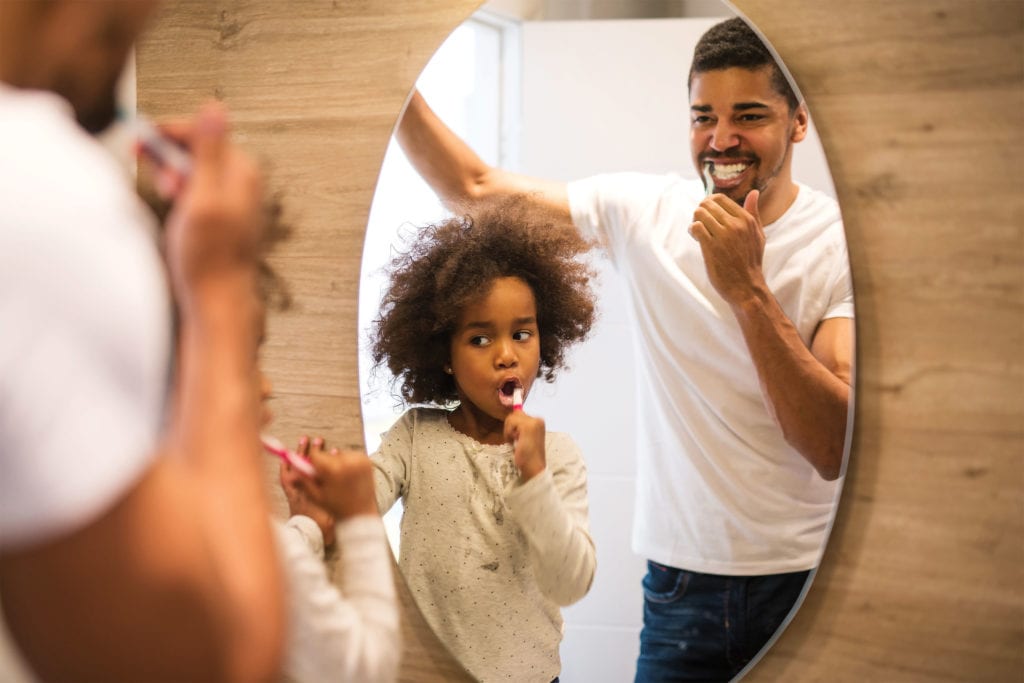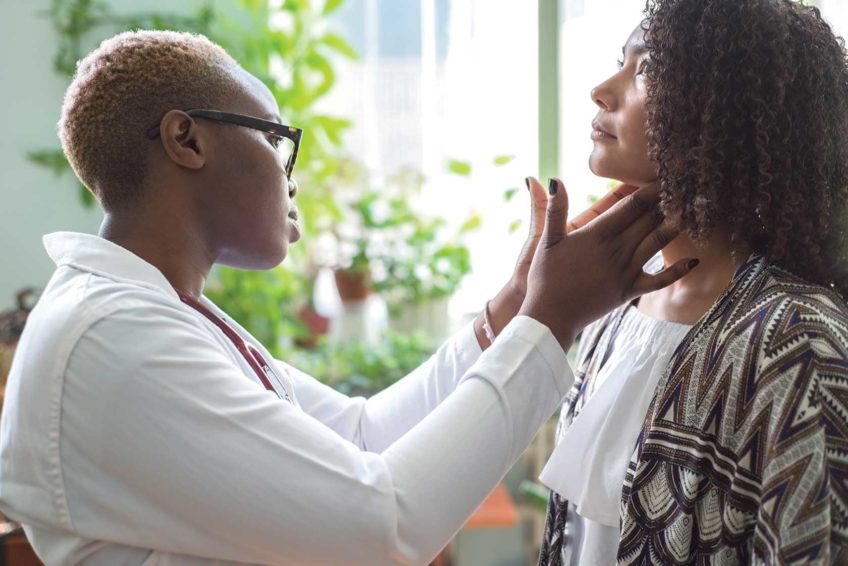
D. Cole’s children are anything but typical. They have a penchant for Brussels sprouts. And don’t try to trick eight-year-old Chaz by substituting traditionally-grown strawberries for organic. He can tell the difference.
They actually like going to the dentist. So much so that 10-year-old Skylah is ready to submit her application to Boston University Henry M. Goldman School of Dental Medicine. When Skylah was five, she had a couple of cavities. Not anymore — with the help of sealants and good oral care. She has been cavity-free for five years, and her two siblings have not had even one.
Cole wants to keep it that way. Their dental check-ups began at one year, and continue every six to 12 months at Boston Children’s Hospital under the watchful eye of Dr. Man Wai Ng.
You can trace the children’s somewhat unique behavior directly to Cole herself. As a youngster brushing regularly was drilled into her head, and it paid off. She said she has not had necessary dental treatment since her teens, and she passed this mind-set on to her three kids. But she had to come up with a plan.
First the brushing. She got her kids used to having a toothbrush in their mouth even before they had teeth. “Good oral hygiene starts with the gums,” she explained. So when that first incisor made its appearance she had already honed her skills.
As her kids got older, brushing became a family affair. She tried to make it fun. Two of the children recited the alphabet while brushing. Shania, her 19-year-old special-needs daughter, preferred to brush to her favorite song. Cole credits the electric brushes they use. They make it easier and more fun, she reasoned. And of course the “sugar bugs” and “mouth monsters” helped, referring to the bacterial villains described by the American Academy of Pediatric Dentistry. No kid wants monsters in the mouth. Her children are old enough to brush on their own, but Cole maintains a watchful eye.
Getting the right food was a bit trickier … and time-consuming. “I would spend hours in the grocery store reading labels,” she explained, scanning the list of contents for sugars and hidden sugars. Armed with good information she developed a plan. Pure 100 percent juice is out. Instead she dilutes it with water. That’s a good thing. The American Academy of Pediatrics recommends that children up to the age of six drink no more than six ounces of pure orange juice a day. The infrequent sugary beverages are drunk through straws to minimize direct contact between the teeth and sugar. Sweet snacks are allowed only at lunch and on special occasions. The rule is to brush soon afterwards or at least rinse their mouth with water.
Her school lunches are healthy. Snacks are actually fruit. When in season, cotton candy grapes serve as a meld of candy and fruit. Lunch beverages are sugar-free juice boxes. But if you ask her what beverage she prefers, she answers in three words — “water, water, water.”
There’s a reason Cole has made the extra effort of good oral health for her children. “I believe your smile is an identity to your soul,” she explained. “I want my children to have a great smile.”
Have a drink |
|
|
Water: The best beverage for your mouth In a way, water multi-tasks. It curbs our thirst, Water also keeps the mouth clean. Many other drinks, such as soda, sports drinks, and even 100 percent juice, contain sugar, which can eventually lead to acid formation and tooth destruction. Water, on the other hand, washes away leftover food and residue and dilutes acids produced by bacteria. Low production of saliva can lead to dry mouth and an increased risk of caries. Drinking water keeps the mouth moist. What’s even better is that it does all this work without adding one calorie to your diet. |
 photo: Davide Guglielmo |






